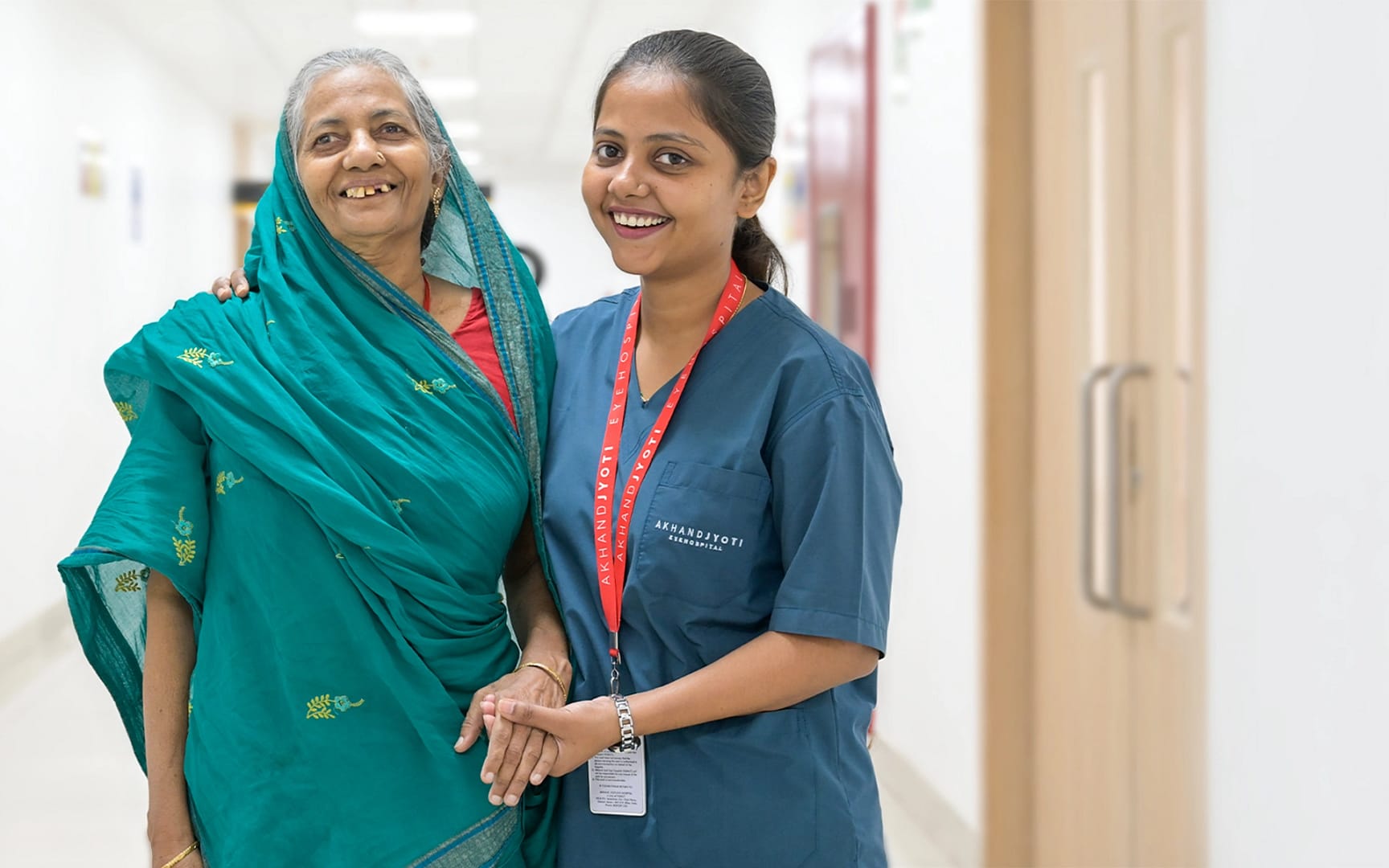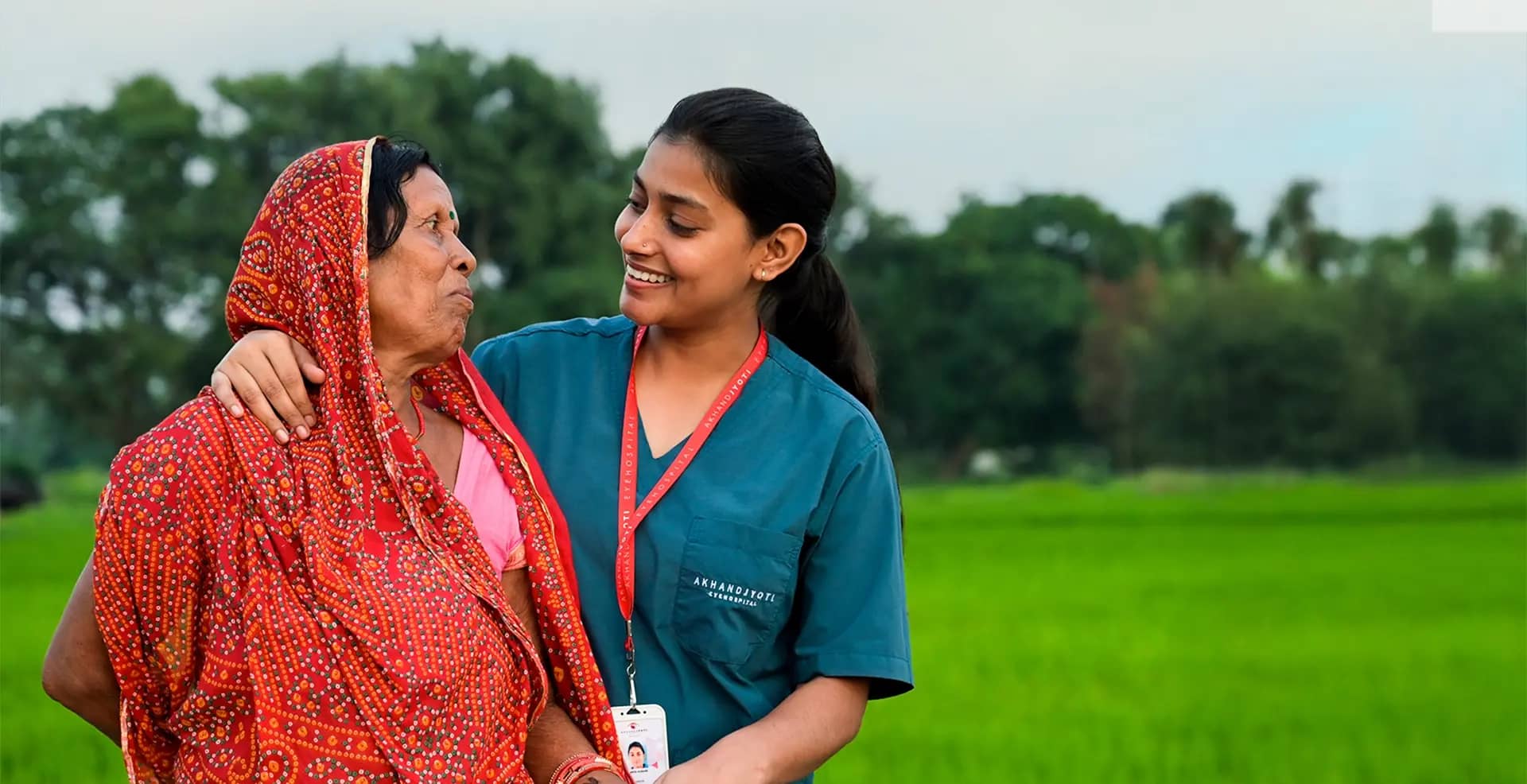
Problem of Primary Eye care and Blindness
Bihar, India, faces a severe shortage of primary eye care services, with minimal infrastructure and manpower to address its high burden of blindness and visual impairment. The lack of timely treatment for curable blindness and refractive errors further deepens health inequalities.
Bihar, India, accounts for a significant share of India’s blind and visually impaired population, with 2.55% of its residents affected — amounting to 3.3 million people. The prevalence of untreated cataracts in adults (73% of blindness) and uncorrected refractive errors in children (82% of visual impairment) underscores the urgent need for eye care, especially as an ageing population and gender disparities exacerbate the issue.
The state’s eye health infrastructure falls critically short, with only 2,599 surgeries per million, far below the national average of 6,012 and limited resources such as 32 eye beds and 5 ophthalmologists per million. Bridging these gaps is vital to meet rising demand and reduce preventable blindness in underserved areas.
62 Million
Visually Impaired
8 Million
Blind People
25%
Of world’s burden of blindness and vision
impairment in India
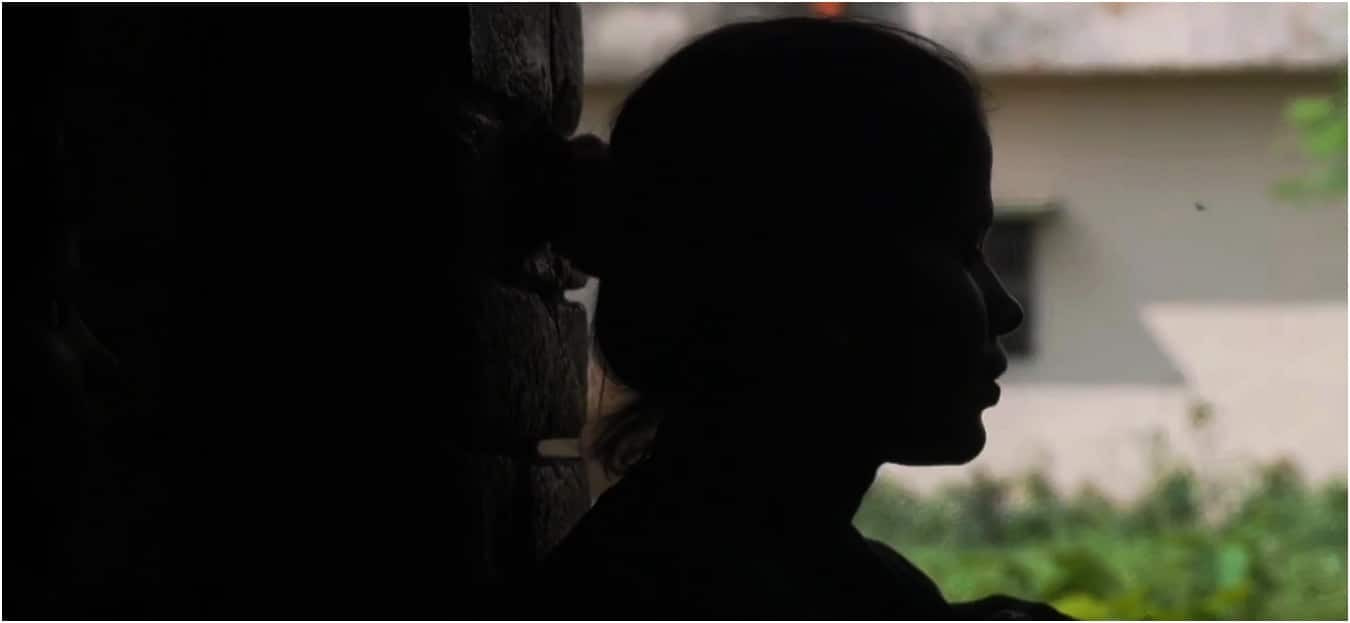
Our Solution to the Problem
For every 200,000 people, one Vision Center is needed to deliver essential primary and community eye care services. In Bihar, optometrist-managed Vision Centers are crucial for ensuring accessible and affordable eye care.
Vision Centers are a ground-up approach to tackling blindness and community eye care. These centres embody the philosophy of “working where it really matters” by providing permanent, community-based eye care in the heart of rural areas. Strategically located, they bring critical services closest to the marginalized communities. These centres embody the philosophy of “Working where it matters” by providing permanent, community-based eye care in the heart of rural areas. Strategically located, they bring critical services closest to the marginalized communities Akhand Jyoti aims to uplift.
KNOW MOREProblem of Gender Inequality
Women and girls, particularly in low-income regions, face significant social, economic, and health challenges that limit their potential and perpetuate cycles of poverty and inequality.
These challenges include early marriage, dowry demands, social and economic discrimination, low workforce participation, limited access to leadership roles, and severe health issues. Addressing these barriers is essential for the holistic development of Bihar and its contribution to India's broader development goals.
- Early Marriage and Dowry DemandsThese problems persist in Bihar, hindering women's opportunities and reinforcing poverty and inequality.
- Social and Economic DiscriminationWomen face barriers to education and employment, with low literacy rates and limited job opportunities.
- Labour Force ParticipationWith one of the lowest Female Labour Force Participation Rates in India, women in Bihar are largely confined to informal, low-paying jobs.
- Lack of Access to Leadership RolesWomen are underrepresented in leadership, limiting their ability to influence decisions and advance gender equality.
- Health IssuesWomen suffer from high anaemia rates and inadequate healthcare, impacting their well-being and participation in society.
- Domestic ViolenceBihar ranks high in domestic violence cases, with many women experiencing physical and sexual violence, particularly in rural areas.
- Gender-Based DiscriminationDiscriminatory practices limit women's access to education, work, and healthcare, reinforcing gender inequality.
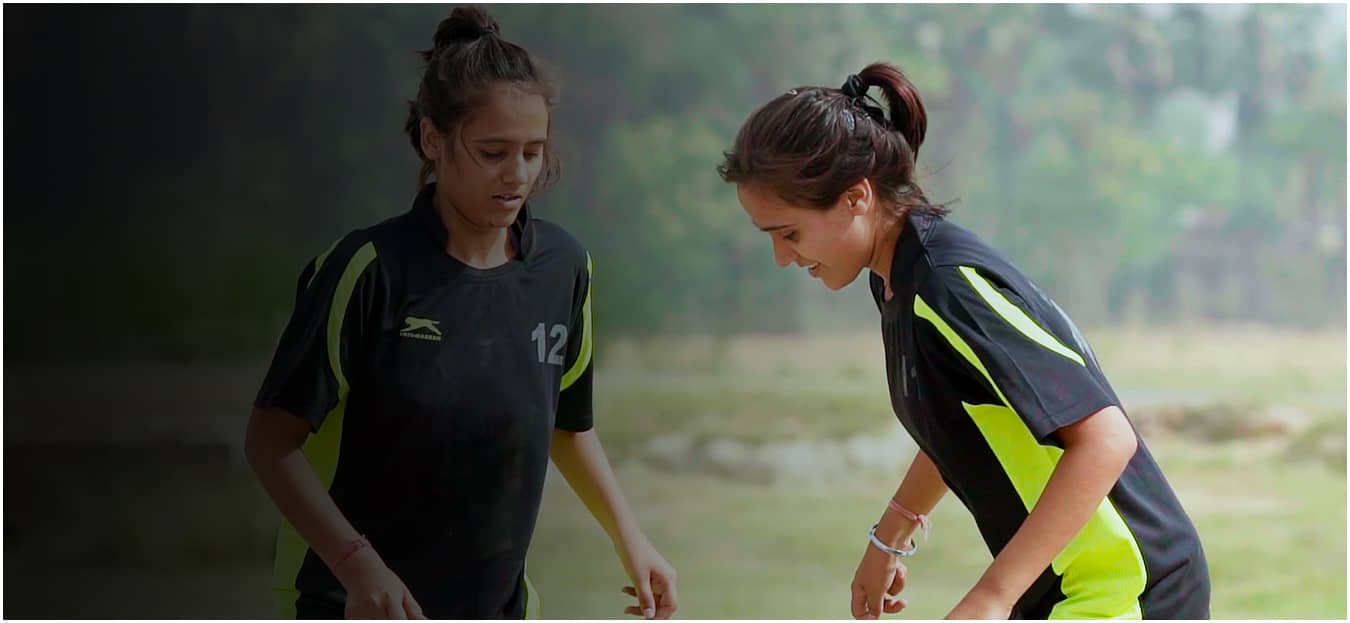
How We Address the Problem
Akhand Jyoti USA aligns with Akhand Jyoti’s women empowerment program and supports its ‘Football to Eyeball’ Girls’ Education initiative, a groundbreaking effort to tackle gender disparity while combating curable blindness. This program leverages the power of sport to break gender barriers and engage rural girls who otherwise have limited opportunities, fostering confidence and building trust within communities.
Once engaged, these girls are offered comprehensive education and training to become qualified optometrists. Upon completing their training, they join Akhand Jyoti’s workforce, contributing directly to the hospital’s blindness elimination mission. Beyond technical training, this program empowers girls to take control of their futures, breaking cycles of poverty and inspiring others in their communities.
KNOW MORE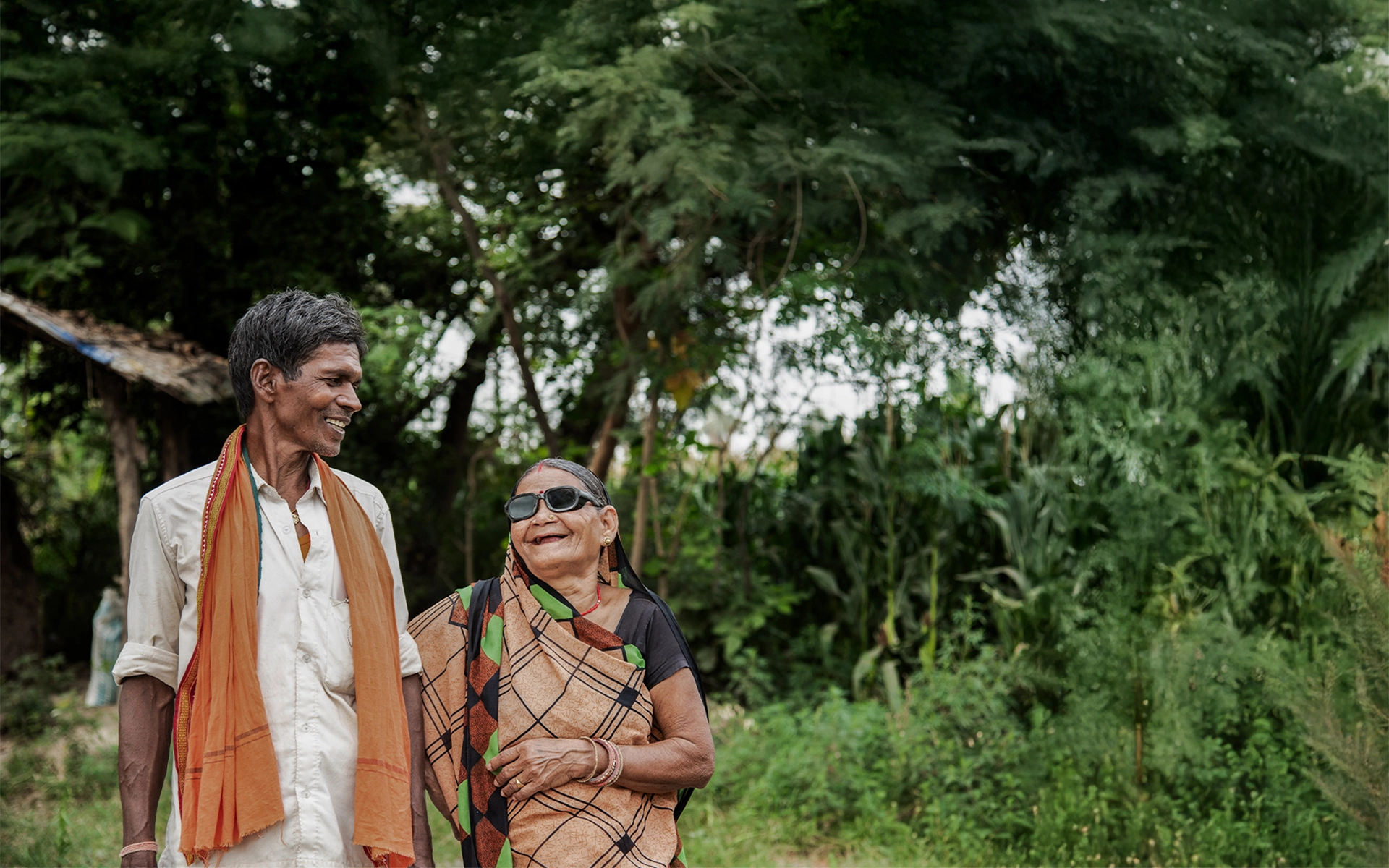
Join The Movement to Support Us
Your Act of Kindness Can Make a Big Difference in Someone’s Life.
DONATE
Eye Health
We will always be dedicated to restoring sight for underprivileged, visually impaired patients.

Women Empowerment
We will always work to support rural underprivileged girls and women and help them get equal opportunities.

Targeted Rural Interventions
We will continue to work only in low-income geographies to support the most deprived people.

